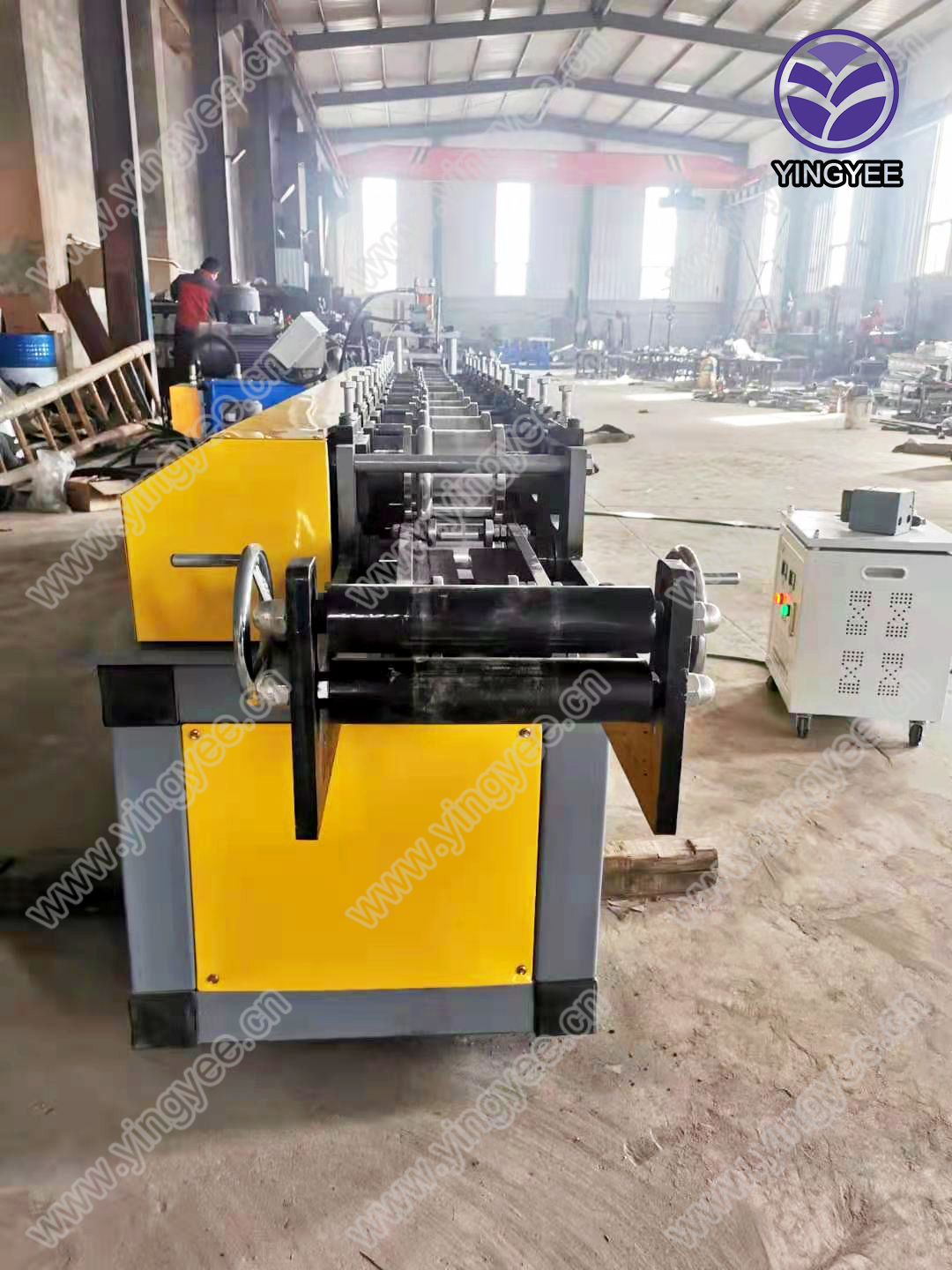
Understanding Downpipe Roll Forming Machines
In the modern manufacturing landscape, efficient, precise, and cost-effective processes are crucial for producing high-quality products. One such innovative solution is the downpipe roll forming machine, a specialized piece of machinery designed to create downpipes used in drainage systems and other applications. This article aims to provide a comprehensive overview of downpipe roll forming machines, including their design, operation, and benefits.
What is a Downpipe Roll Forming Machine?
A downpipe roll forming machine is a type of industrial equipment that shapes metal sheets or strips into specific profiles, typically required for downpipes. Downpipes are vertical pipes that channel rainwater from roofs to gutters or drainage systems, essential for preventing water damage and managing water flow. The roll forming process involves feeding a flat metal strip into a series of rollers that gradually bend and shape the material into the desired profile.
Components and Design
A typical downpipe roll forming machine consists of several key components
1. Feeding Section This is where the raw material, usually in the form of galvanized steel or aluminum, is fed into the machine. The feeding system must ensure precise alignment and consistent feed rate.
2. Roll Forming Station This is the heart of the machine, where the actual shaping occurs. It contains multiple rollers arranged in a series, each designed to form specific sections of the profile. As the material passes through these rollers, it gradually takes on the desired shape.
3. Cutting Section Once the material reaches its final profile, it is cut to the desired length. This may involve a saw or shear cutting mechanism that ensures clean and accurate cuts.
4. Control System Modern machines are equipped with a computer-based control system that allows for easy adjustments to the speed, pressure, and cutting length, enhancing precision and efficiency.
Operation Process

The operation of a downpipe roll forming machine begins with loading the metal strip into the feeding section. The machine is then activated, and the strip enters the roll forming station, where it passes through a series of rollers. Each roller applies pressure to the metal, bending it into the correct shape as it moves through the stations.
Once the profiling is complete, the flattened metal strip is moved to the cutting section, where it is cut to the necessary lengths, ready for assembly or installation. This entire process is automated in modern machines, which significantly reduces the chances of human error and increases production speed.
Benefits of Using Downpipe Roll Forming Machines
1. High Efficiency Roll forming is a continuous process that can produce large quantities of downpipes quickly. This makes it suitable for both small-scale and large-scale production.
2. Consistency and Precision The automated nature of roll forming ensures that every downpipe produced meets stringent quality standards with uniform dimensions.
3. Material Versatility While commonly used with steel or aluminum, roll forming machines can also work with other materials, offering flexibility in production.
4. Cost-Effective Production By minimizing labor costs and reducing waste, downpipe roll forming machines provide a cost-effective solution compared to traditional manufacturing methods.
5. Durability of Products The materials often used in conjunction with roll forming machines are durable, providing long-lasting solutions for drainage systems that can withstand various environmental conditions.
Conclusion
In summary, downpipe roll forming machines represent a significant advancement in the manufacturing of drainage components. Their efficiency, precision, and versatility make them an invaluable tool for manufacturers aiming to meet the growing demand for high-quality downpipes. As technology continues to evolve, these machines are likely to become even more sophisticated, further enhancing their capabilities and applications in the construction and infrastructure industries. Whether for residential or commercial purposes, downpipe roll forming machines exemplify the innovation driving modern manufacturing processes.